- Home
- Helen Forrester
Liverpool Miss Page 2
Liverpool Miss Read online
Page 2
Occasionally, when Edith was angry she would hiss savage remarks about my parents’ lack of feeling, and quote this incident as an example of it. The housemaid left us shortly afterwards, in protest, according to Edith. Edith herself stayed with us until we left the district, because she was engaged to a young farmer nearby; and I clung to her as a mother substitute. She was a plump, comfortable country girl with rosy cheeks and fluffy, long brown hair, and was downright in her speech. I never doubted anything she said.
I had only two close contacts to assuage this sense of isolation. One was a very old interpreter, who sometimes sat in Princes Park to sun himself. We talked a lot about the Middle East and about other languages, as I sat and supervised the children’s play. One day he was missing from his usual seat and never came again. I presumed he had died and had gone to join his wife and his sons. The boys had been killed in the war and he grieved for them.
The other friend was a Spanish woman named Cristina. She and her husband, Alonzo, lived in the basement of the house next door to that in which we had originally rented an attic. Her children were all grown up and had left home. She was extraordinarily kind to Edward and me, and it was she who had given us the Chariot in which I wheeled Edward and Avril around.
In my position as surrogate mother, I had neither time nor opportunity to play. As the children became rougher and, in order to survive, became more like the other boys and girls in the district, the gulf widened between us and there seemed to be no close communication. Even Alan, so close to me in age, was to me a child; I did not worry him with details of our empty pantry.
Because I did not have a shopping bag, the greengrocer used to wrap up potatoes and other vegetables in newspaper for me, and when I arrived home I used to read these papers. There were descriptions of local tennis tournaments amongst young people, and stories of balls and receptions. I would stand dreaming with the muddy paper in my hands, imagining myself scampering about a tennis court delivering serves that raised cheers from the onlookers; or I would think how lovely it would be to skim around a ballroom in a billowing net dress. And how good it would be to go to the theatre again. In me were the stirrings of womanhood, though I did not understand them, and I had an instinctive desire to be clean, to be prettily dressed, to hide as much as possible the ugliness which I had been assured was mine.
When I thought about it, I became so afraid of the friendless, empty future, that sometimes my legs would begin to give under me, and I would have to stop walking and cling to the pram handle until the sense of blind panic passed.
CHAPTER FOUR
Mother worked on short contracts in the bigger city department stores. She demonstrated new products, like kitchen gadgets, or was engaged specially to sell slow-moving goods that might deteriorate if kept in stock too long. She slowly gained a good reputation, and stores would pass her from one to another, to get rid of piles of baby baths in unpopular colours, baby clothes that threatened to harbour moths, cameras and photographic supplies left over from the summer season, and the newest wringer washers and gas stoves.
She became an excellent saleswoman, and it used to amuse me to carry Edward into a shop and watch her demonstrate the use of a gadget. It fascinated me to observe how she could beguile housewives into impulsive purchases.
One day, Avril and I stood at a discreet distance behind her in a baby-wear department. I held Edward in my arms and, though he must have known he was watching his mother, he placidly sucked his thumb and did not call out. She was selling violently pink rubber baths.
She tenderly picked up a rubber doll and plunged it into imaginary water, talking all the time, first to the doll as if it were a baby and then to her audience, who, quite amused, slowly gathered round her. She dried the doll and dusted it with baby powder and put on its nappy. Young mothers and obviously expectant mothers were her targets, and they soon found themselves hooked into friendly conversation. Mother seemed to be able to make them feel that their baby was her only interest in life; and if they already had a baby bath, she would skilfully pass them to one of the shop assistants, whose battle for a sale of baby clothes was, of course, already half won.
Before Father went bankrupt, she had for years been a member of Operatic and Dramatic Societies, and she knew enough of stagecraft to use her voice and manner to the best effect. She was never paid enough for her ability.
She looked very attractive, despite her thinness, in a black dress and black shoes purchased from a second-hand shop. I used to cut her hair for her with Father’s cut-throat razor and then curl it each morning with a pair of curling tongs, bought for a penny from the pawnbroker’s oddments table set up outside his shop.
Of course, I never approached her while she was working; and Avril understood that she must be quiet and tiptoe away at an appropriate moment. I doubt if she noticed that we were there, because she never mentioned seeing us.
Avril’s and my great enemies were the shopwalkers. Sometimes when we were cold, we would go into a big shop and skulk around the different departments until we became warm again. And then the shopwalker would pounce.
Shopwalkers always looked very imposing. They were usually elderly gentlemen dressed in stiff, white, Victorian wing collars and black suits. They perambulated stiffly up and down the aisles of the shops, hands clasped behind their backs. They glared ferociously at the young girls and boys who served behind the counters. Then, with a slight bow, they would lend a courteous ear to customer inquiries, the whispered remarks almost drowned by the loud rings of the containers, holding payments or change, shooting along wires above their heads on their way from the counter to the cash office.
I never argued with shopwalkers.
‘What do you want?’ they would snarl.
‘I’m just looking,’ I would say loftily, exactly as I had heard people round me say.
The usual reply was, ‘You can look in the windows.’
Then they would stride crossly to the nearest door and fling it open, and Edward, Avril and I would slink out like lost puppies.
One October day, we went into a shop in which Mother was working, to get warm. Mother was selling photograph albums. Her voice penetrated clearly through the murmur of shoppers as she extolled the advantages of having an album for each particular type of photograph. Avril, Edward and I settled down to watch.
I had not been feeling well for two days. My back ached, as did my head. I had got very wet in a rain storm earlier in the week, and I shrugged off the low level discomfort as being due to this. As I watched, however, the pain in my back began to feel as if an iron belt had been suddenly clasped round my waist. Pains shot down the sides of my stomach.
I gasped to Avril that we had to go home quickly, and dragged her back to the pram, parked in the shop doorway. She protested in a loud whine as I plunked her into the pram with Edward. Panting with pain, I began the long ascent up Renshaw Street, Hardman Street and Leece Street.
The pain came in ever increasing waves. Sweat beaded my forehead and I leaned on the pram handle for support, as I almost ran for home.
In St Catherine’s Street, opposite the Women’s Hospital, I stopped to lean against a brick wall as a particularly agonising pain ripped down the side of my stomach. Though I stared at the hospital with glazed eyes, it did not occur to me to seek succour there. To a child, in those days, hospitals were usually where old people went to die. Fiona had once gone to hospital and her lurid tales of her experiences had been enough to frighten all of the children. So the hospital was just another impersonal red brick building to stumble past on my way home.
Avril was whining and snatching at the twig with which Edward was playing. Mercifully, they both seemed unaware that anything was wrong.
I ran the pram up to the front step of our house, and tugged at the string sticking through the letter-box. The string pulled back the lock, the door swung open and I almost threw first Edward and then Avril into the narrow hall.
The pain was again surging in my stoma
ch.
Frightened to death, I slammed the front door, snatched up Edward and carried him through to our back yard, leaving an angry Avril howling in the hall. Perhaps if I went to the lavatory I would feel better.
I left the lavatory door ajar, so that I could watch Edward, while I snatched down my knickers.
The torn, grey garment was covered with blood.
I thought I would faint with sheer terror.
Was it appendicitis?
Again the waves of pain. I dropped down on to the seat, clasping my stomach. When the pain eased slightly, I hitched up the soaked knickers and took Edward back into the house. I had to lie down.
Avril was sitting on an upturned paint can, nursing a stray cat which had wandered in a day or two before. She had been crying and when she saw me, she let out a fresh bellow. Normally, I would have comforted her, but this time I dumped Edward unceremoniously down beside her.
‘Watch Edward,’ I ordered.
Where should I lie?
My bed upstairs was a door set on four bricks and I could lie on it. But Edward might follow me up the stairs and then fall down again.
Better to go into the nicely furnished front room, a place I normally did not enter because Edward was usually with me – and he always had grubby hands and was not yet reliably watertight.
Edward did follow me in, and I hastily gave him the new, unused bronze fire irons to play with. A resentful Avril stayed with the cat.
My parents, with their usual blithe inconsequence, had furnished the front room very well on the hire purchase system, regardless of the fact that the children still slept three to a bed under a motley collection of old coats and bits of blanket; and I did not even have a bed.
I was thankful enough that day, however, to curl up on the green leatherette settee. In the foetal position the pain lessened, though during the next surge I fainted.
I sobbed to myself and prayed that Mother would come home soon. Then the sacrifying spasms retreated slightly and I fell into a doze.
Father shook me gently to awaken me and asked anxiously, ‘Are you all right, dear? You look very white.’
My stomach and back were tight knots of pain, increasing and decreasing like waves on a seashore. I was also shivering with cold from the unheated room. I hardly dared to move, as I whimpered out the story of the torment I was enduring.
‘My underneaths are bleeding, Daddy. Do you think I’ve got appendicitis?’
Bent over me, he listened. Then his eyes began to twinkle, his lips to twitch. A loud guffaw burst from him.
I was horrified at such a reaction to my story.
‘Daddy!’ I reproached him, and then broke into a moan as the pain increased.
Father straightened up and, still smiling, let out a slow sigh of relief.
‘Didn’t your mother explain this to you?’
‘What?’
‘This – this bleeding?’
‘No. Was she expecting it?’ I was totally bewildered, and I sobbed as the pain hit new heights.
‘Well, of course. She must have been. You’re a girl.’
‘Of course, I’m a girl,’ I gasped. ‘What difference does that make? Daddy, could you get the doctor? The pain’s getting worse.’ I was deeply upset at his laconic attitude.
He hesitated for a moment. Then he said, ‘You just stay where you are for the moment, until Mother comes home. Fiona’s making the tea. I’ll ask her to bring you a cup. She peeked in here and thought you were sleeping, so she has laid the table for you and cut the bread and butter. I will make the fire in the kitchen for the children.’ His voice was kind.
With eyes screwed tight to help me bear the raging pain, I put my head down again on the inhospitable green leatherette. I heard him open the door, pause a moment and then say, ‘Don’t be afraid, old lady. This is nothing to be frightened about. You don’t need a doctor.’
I did not answer him, because I did not believe him. I could not understand how anyone could be in such pain and not need a doctor. ‘Mummy, come soon,’ I sobbed. Cold, indifferent Mother seemed to be the key to it all.
The door clicked again and I opened my eyes. Fiona entered, carefully balancing a coarse china cup on a saucer which did not match. Despite her care, the tea slopped as she put the cup and saucer into my hand. She looked at me anxiously from beneath a roughly cut fringe of nut brown hair.
‘Daddy said to drink the tea while it is very hot. What’s the matter, Helen? You look awful.’
I was shaking so much that, as I raised myself a little, I slopped the tea on to the new settee. ‘I don’t know, Fi,’ I answered, as I tried to sip the scalding liquid. ‘Daddy says it’s nothing – but, oh, Fi, I’ve got such a terrible pain in my back and tummy – and I’m bleeding underneath.’
Fiona’s pink cheeks blenched. ‘Bleeding?’
I nodded affirmatively. The tea was comforting and I drank it eagerly, though it was hot enough to burn my tongue.
‘Oh, Helen!’ she whispered.
‘Daddy said to stay here till Mummy came. Can you manage?’
‘Yes, of course. Daddy’s making the fire and Alan is fetching the coal for him. You rest. Mummy will come soon.’ She was trying hard not to panic herself.
‘Where’s Edward?’ I asked.
‘He’s in the kitchen. He’s fine.’
I could feel a warm trickle between my thighs and I took deep breaths to avoid screaming in fright.
‘Go and have your own tea,’ I told her in a strained whisper, and she went, stopping at the door to look back at me with fearful violet-blue eyes.
‘Don’t be afraid, Fi,’ I panted and tried to muster a smile for her sake. ‘I’ll be all right.’
She smiled back with sudden relief and shut the door quietly after her.
I was sure, as I sank back on to the settee, that I was on my death bed. And Father did not care!
CHAPTER FIVE
Mother sat down on the green leatherette easy chair opposite to me, and took off her hat. She looked tired and irritable.
‘Oh, Mummy,’ I wailed. ‘I’ve got such a terrible pain – and I’m bleeding.’
‘Oh, stop crying, Helen,’ Mother snapped wearily. ‘There’s nothing the matter with you. This is what I told you about years ago. All girls bleed every month.’
I looked at her with wide-eyed horror, while I pressed my hands into my raging stomach. ‘I don’t remember your telling me.’
‘Of course I did – when you were about nine.’
If she had told me, the information must have been given so obliquely that it did not then register on my childish mind.
My teeth were chattering, as I asked incredulously, ‘Every month – and pain like this?’
‘Of course not. It doesn’t hurt at all. You have just worked yourself into a panic, and that has caused the pain. It will go away quite soon. We’ll try to get some aspirins, before it is due next time.’
Mother smoothed her hair, ruffled from her hat, and got up briskly. ‘I’ll put a kettle on and when it is boiled, you can come into the kitchen to wash yourself. I’ll get a piece of cloth and show you how to keep yourself dry.’
‘Will it be like this ever again?’ I asked between dry sobs.
‘I doubt it, if you don’t have hysterics.’
Twenty minutes later, I was seated by the kitchen fire, washed and tidied, drinking another cup of hot tea. The heat from the fire helped and gradually the pain receded, as Mother had promised.
The boys stared at me because they had been told that I had had hysterics over a perfectly normal tummy ache; and they went away, Alan to night school, Brian and Tony to play bus on the stairs.
It had been a terrifying promotion to womanhood. I felt humiliated and stupid, and blamed myself for my pain. I had been aware of changes in my body, but I was so undernourished that the changes were slight and they had come slowly enough not to scare me.
Three weeks later, I collapsed with pain in night school. The English teacher made
me swallow two aspirins, told me I would be all right in an hour and sent me home. Mother said the same thing and sent me up to bed, where I groaned and moaned my way through the next eight hours or so. In the early hours of the morning I fell asleep, exhausted.
From month to month the pain persisted, and Mother became more concerned. She bought dried mint and made a tea for me to drink at the onset of the first ache. It did not help. Cristina, my Spanish friend, recommended a thick paste made with ginger spice and hot water, to be licked off a spoon. Trustingly I downed this horrible concoction, but the pain continued. Cristina laughed, and said all the pain would cease either on marriage or after having a baby.
I knew I was too bad-tempered and too plain to hope for marriage; and I was certain in my mind that, however babies came, I was not going to have one outside marriage. So I smiled dimly at her and did not reply.
All the well-meaning adults in my life assured me that menstruation was just part of growing up and that some girls had more difficulty with it than others did. Nobody suggested that I should see a doctor. Since doctors cost money, and I rarely thought of acquiring anything that required payment, it did not occur to me either.
For a week or two, I would forget the pain in the bustle of caring for the children’s endless needs, and running off to night school through misty streets, where strange, shadowy women lurked; and then apprehension would begin to creep over me. I would ask Mother for some of her aspirins and store them behind the alarm clock on the kitchen mantelpiece. I learned that heat was comforting and when I saw a pile of new bricks lying on a building site, I begged two cracked ones from the bricklayer and brought them home. I heated them in the oven beside the kitchen fire, and when the onslaught began I wrapped them in newspaper and lay on the green leatherette settee, clutching them close to me. Edward began to think it was a new game and wanted a brick for himself. He thought it was a great joke to cuddle up close with the bricks between us. Since he must often have been cold, the heat was probably comforting to him, too.

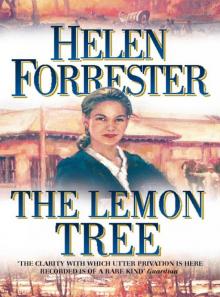 The Lemon Tree
The Lemon Tree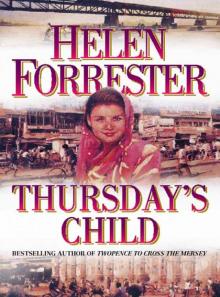 Thursday's Child
Thursday's Child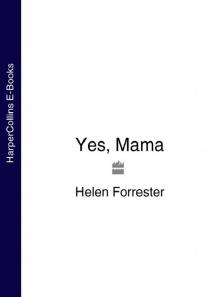 Yes, Mama
Yes, Mama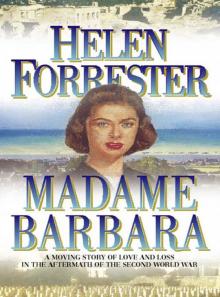 Madame Barbara
Madame Barbara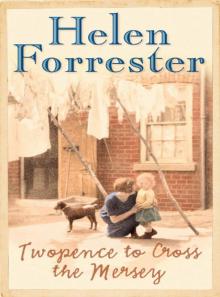 Twopence to Cross the Mersey
Twopence to Cross the Mersey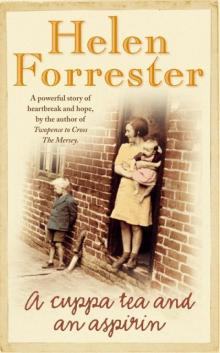 A Cuppa Tea and an Aspirin
A Cuppa Tea and an Aspirin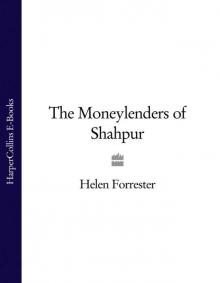 The Moneylenders of Shahpur
The Moneylenders of Shahpur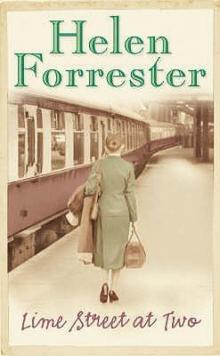 Lime Street at Two
Lime Street at Two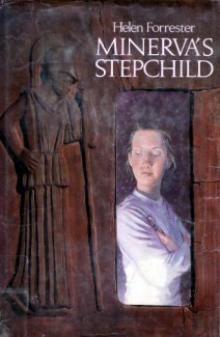 Minerva's Stepchild
Minerva's Stepchild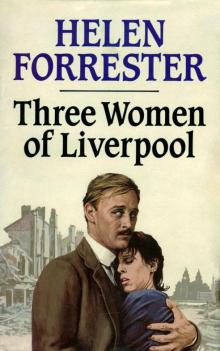 Three Women of Liverpool
Three Women of Liverpool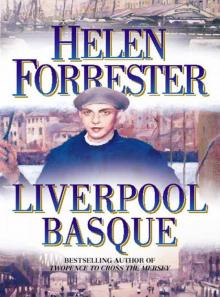 The Liverpool Basque
The Liverpool Basque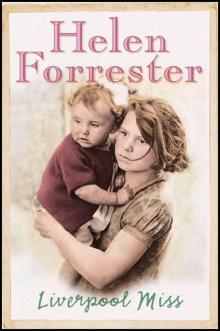 Liverpool Miss
Liverpool Miss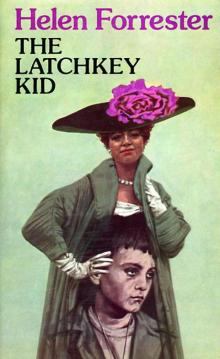 The Latchkey Kid
The Latchkey Kid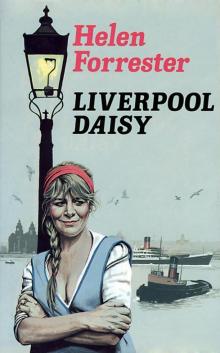 Liverpool Daisy
Liverpool Daisy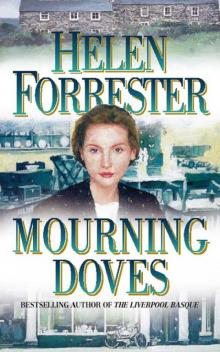 Mourning Doves
Mourning Doves